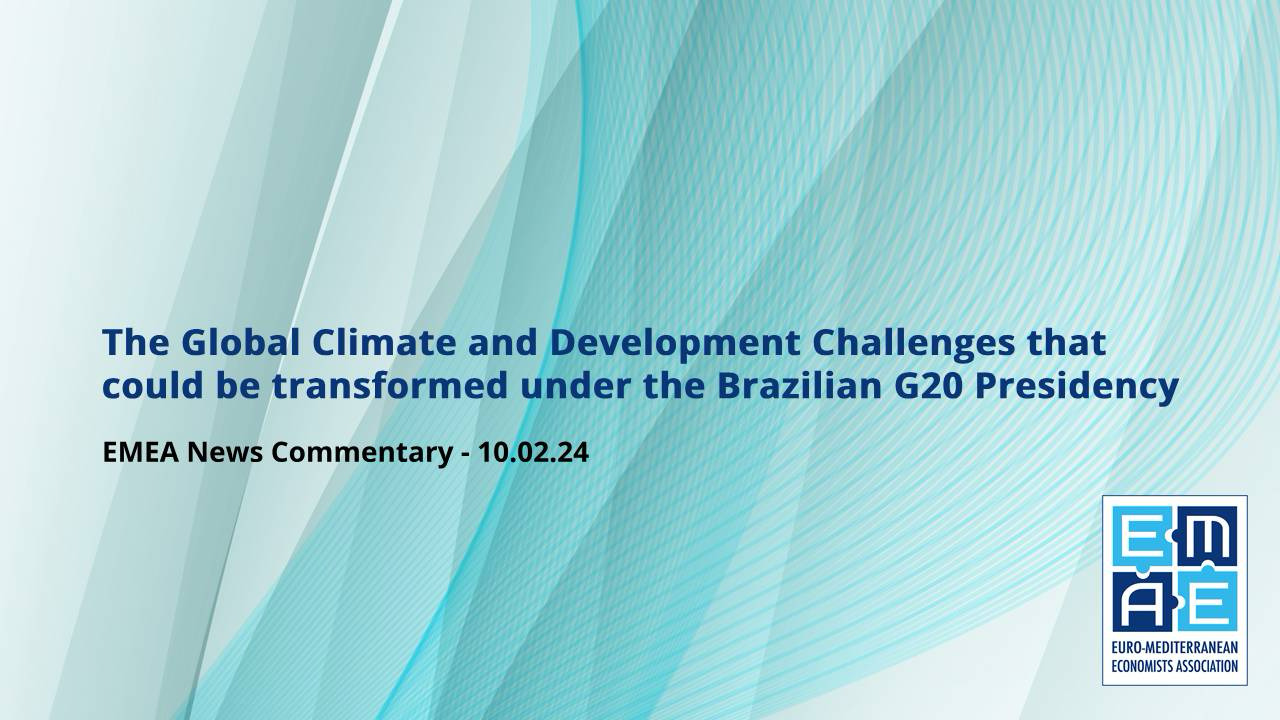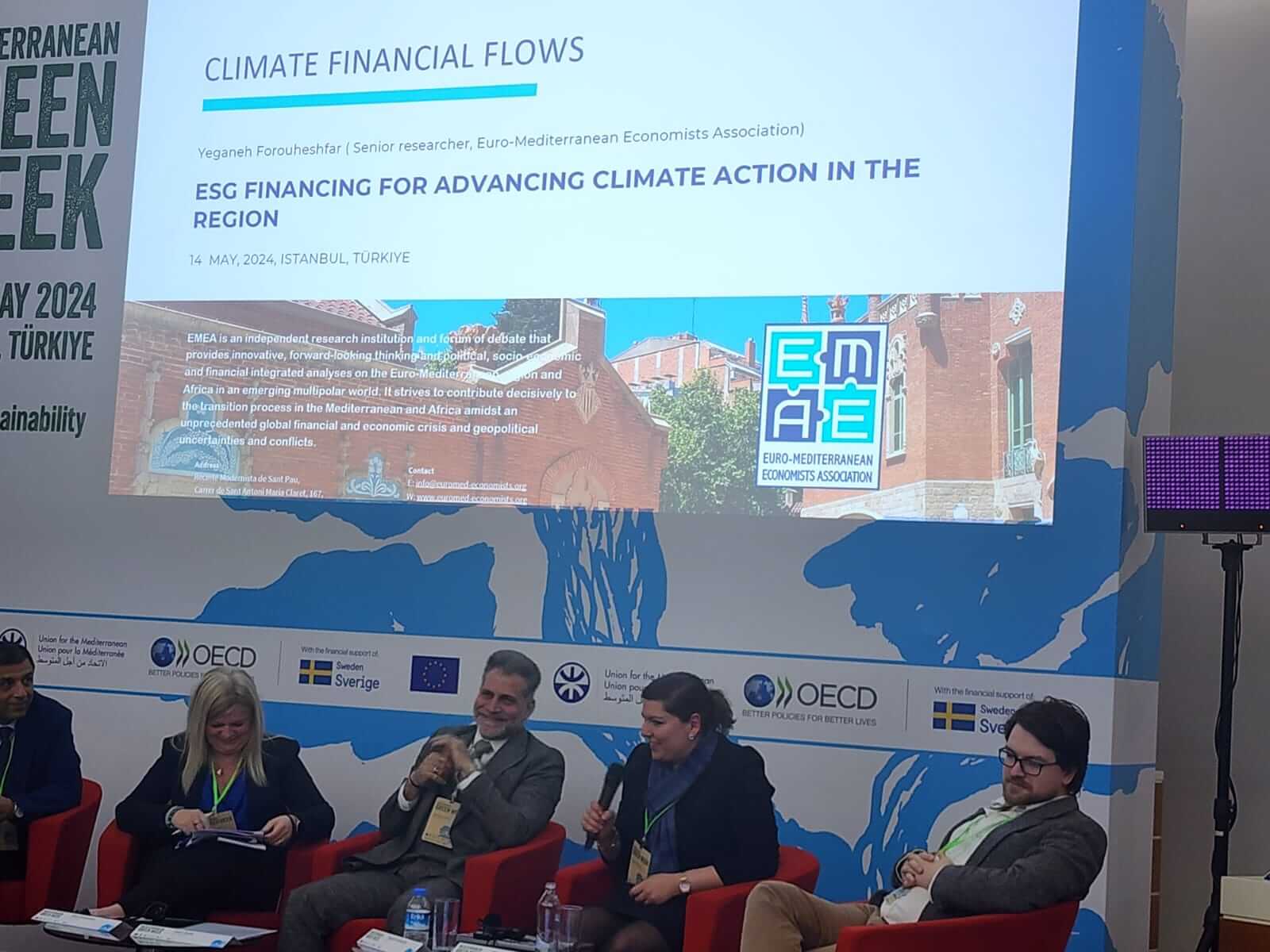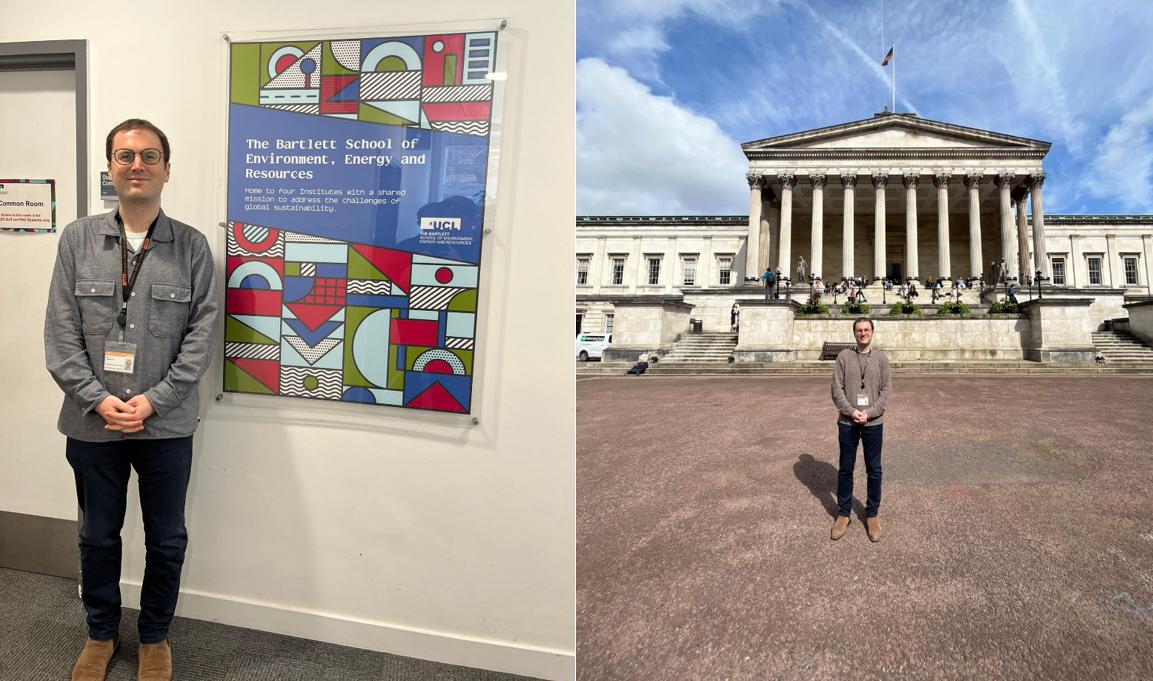The Brazilian G20 Presidency provides a golden opportunity to restructure the global economy and build a dual-fronted political consensus, capable of addressing the twin challenges of climate and development.
That’s the view expressed in an in-depth article published by the independent think tank, CEBRI (the Brazilian Centre for International Relations).
They speak of Brazil spearheading a new energy sustainability package – one that emphasises transitioning away from fossil fuels, whilst also encouraging a reformed vision for the financial system and the conduct of its institutions, norms and terms of operation.
CEBRI highlighted a speech made by Brazilian President Lula da Silva to world leaders at the Paris New Global Financial Pact Summit last June, where he said that his nation would lead by example as the hosts of COP30 in 2025. This included a promise to end deforestation by 2030, push for a redesigned international financial system and address inequality, in tandem with climate change.
“The 2024 G20 is an opportunity for Brazil to walk the talk on all of these issues – and there is strong hope that it will, given the ambitious agenda and priorities laid out by President Lula on December 13, 2023, during the first G20 meetings held under Brazil’s stewardship,” said the article.
It continued: “What President Lula’s speech points to is the need to broker a consensus around a new modus operandi for our global economy and financial system, and the G20 is precisely the space to do that as the “premier forum for international economic cooperation.”1]
As a key multilateral forum, Brazil should use its G20 leadership “to help design the post-Bretton Woods world, which should address both the climate crisis and inequality.”
Although not always successful, when the G20 did operate, as with the Global Financial Crisis, it was capable of producing “strong political directionality on a pressing global issue.”
Although Brazil would be assuming the G20 Presidency at an extremely sensitive time, the country was “uniquely well positioned for success with its ambitious agenda.”
It recognised that with every passing year. there was ever greater urgency to address the climate and development agendas.
“Inaction will only accelerate climate change’s potential for widespread damage, putting elected officials under pressure within the timespan of their current mandates.”
The narrative continued: “What is needed from Brazil to deeply reshape our global economy and restore trust, is building a political consensus on a new energy package and financial reform vision to address the twin challenges of climate and development.”
Accelerating a new Clean Energy landscape
According to the 2023 UN Environment Programme, G20 countries represented 76% of global greenhouse gas emissions. This meant their leadership was essential in addressing the climate crisis.
CEBRI urged Brazil to use its Presidency “to reframe the climate and energy policy landscape towards a goal of societal resilience and true security.”
Accelerating the clean energy transition and building much greater resilience to climate impacts, would contribute to achieving nearly all the other UN Sustainable Development Goals, the article continued.
“Raising climate ambition is not at odds with economic development and poverty alleviation, but, rather, is essential to achieving those objectives,” they wrote.
The shift to clean energy was also associated with geoeconomic advantages, as the International Energy Agency (IEA) had noted in its 2023 Net Zero Roadmap. And whilst the outcomes of the United Nations COP28 Climate Summit in Dubai had also provided a strong basis for Brazil to build upon, there needed to be a major scaling of finance for the decarbonisation of developing country economies.
It was essential for Brazil’s G20 Presidency to make progress on the following interrelated goals:
- Tripling renewable energy capacity and doubling energy efficiency gains by 2030
- Phasing down fossil fuel production and usage
- Eradicating fossil fuel subsidies
- Managing energy and trade competition
Mobilising funds for Renewable Energy
The challenge now for the G20 was “to take the individual and collective action needed to follow through on its support for the 2030 renewable energy expansion goal – particularly in terms of mobilizing much greater sums of public and private finance.”
This was in response to the 2023 International Renewable Energy Agency (IEA) finance report, which stated that investments in renewable energy, energy efficiency and other energy transition technologies would need to at least quadruple between now and 2030, to keep within the 1.5°C target. A more equitable distribution of this investment was also required.
Brazil’s G20 Presidency’s commitment towards much greater renewable energy investment and addressing distributional disparities “should include securing a tripartite commitment from multilateral development banks (MDBs), the private finance sector and donor governments to triple the amount of renewable power capacity they finance.”
Insufficient grid infrastructure investment was also “a major barrier to both faster growth in new renewables capacity and maximizing generation potential from existing renewable capacity.” The IEA’s Electricity Grids and Secure Energy Transitions report had noted that for national climate goals to be achieved, it would require adding or refurbishing a total of over 80 million kilometres of grids by 2040 – the equivalent of the entire existing global grid.
The upcoming Presidency “should develop a roadmap for sharply increasing investments in power grid infrastructure.” This would need to include support for the expansion and modernisation of grid networks, connecting renewable energy projects and implementing smart grid solutions.
Action on Energy Efficiency
Stressing the importance of global collaboration, CEBRI wrote that energy efficiency offered some of the fastest and most cost-effective actions to reduce emissions, which was “central to a just and inclusive energy transition.”
IEA analysis had shown that accelerated action on energy efficiency and related energy demand measures could reduce CO₂ emissions by 5 gigatonnes per year by 2030.
Brazil’s G20 could build on the New Delhi Leaders’ Summit support for the global goal of doubling energy efficiency and its Voluntary Action Plan for achieving that goal “by convening relevant delivery organizstions and detailing more concrete action on measures under each of the Plan’s five pillars,” the article recommended.
Transitioning away from Fossil Fuels
For the Paris Agreement’s 1.5°C temperature increase limitation to stand any chance of success, sharp reductions were essential in the production and use of all fossil fuels over the next decade– including coal. G20 countries needed to lead on the global transition to fossil-free energy systems.
Carbon capture and other abatement technologies could also play a role in hard-to-abate sectors over the longer term, although this wouldn’t “significantly affect the global emissions trajectory over the next five to ten years.”
Under Brazil’s Presidency, the G20 should now build on its September 2023 Delhi Declaration call for “accelerating efforts towards phasedown of unabated coal power” by including an explicit reference to ‘no new coal.’
Brazil had a unique opportunity to demonstrate its leadership on this front by signalling that it had no need to build new coal plants, because coal couldn’t compete with cheaper renewables. Instead, it should state that it intended “to utilise its demonstrated high renewable energy resource potential to secure its energy future.”
G20 leadership was also required on developing effective and equitable oil and gas transition strategies, across all countries. This should identify how to guarantee provision of the appropriate transition finance.
The article recognised that with countries phasing down fossil fuels, this transition would create growth potential in some sectors, whilst leading to declining markets and employment in others. But planning and support was needed because of “substantial risks of workers, communities and regions affected by this transition being left behind.”
Drawing on the work of the International Labour Organisation, the G20 should also “develop an ecosystem of support for just transitions in its own member countries and, more broadly, through establishment of technical, financial, and knowledge networks to help accelerate action.”
G20 countries could also provide much-needed leadership on implementing the COP28 ratified Just Transition Work Programme.
Meanwhile, Brazil should task G20 Finance and Energy Ministers to co-prepare an implementation roadmap on phasing down fossil fuel subsidies, in readiness for approval at their November 2024 Summit.
A new vision for Global Financial Reform
Given the shortcomings of the current global financial system, the G20’s relevance was increasingly being called into question, including from some of its own members. To counter this, Brazil had “a timely opportunity to illustrate its leadership by defining a new global financial reform vision for climate and development.”
A new global financial consensus rested on two key efforts: 1) reform of the global financial system’s institutions; and 2) reform of the global financial system’s norms and terms of operation.
The article said that overhauling the global financial system’s institutions should start with bigger and better multilateral development banks (MDBs) – but much work remained to be done, as had recently been highlighted by President Lula. They said priority should be given to:
- Building on efforts to implement ambitious changes to MDBs’ capital adequacy framework (CAF), to unleash their full financing potential.
- Increasing MDB financial firepower, namely their capitalisation levels. This could take years “but Brazil should seize the window of opportunity opened up last October by G20 Finance Ministers.”
- Deepening discussion on the MDB system’s governance: the MDB governance conversation should be broadened beyond the World Bank and systematised.
Overhaul of the International Monetary Fund (IMF)
Reforming the global financial system’s institutions also required deepening reform of the IMF – initially financially. Brazil could encourage early G20 discussions on the IMF’s capacity to deliver increased financial aid through a new US$ 650 billion issuance of Special Drawing Rights in 2026, whilst “continuing to push the envelope to durably address fiscal space issues.”
Secondly, it was Brazil’s role to “push for increased transparency and consistency of the IMF’s methodology.”
Thirdly, on governance, given the IMF Board’s “significant” moves to realign the Fund’s quotas by June 2025, Brazil should seize this opportunity to shape the debate, building robust G20 support.
CEBRI further asserted that “Brazil should further raise the stakes in 2024 by integrating more squarely, in the G20’s narrative, agenda and outcomes, the need to also transform the financial system’s terms of operation… to strengthen the climate information architecture.”
Significance of Transition Plans
Transition plans, whilst being a politically sensitive topic, were “a key emerging norm” which had a major bearing on how the global financial system’s inner workings might be transformed, securing its resilience to climate change, as well as that of the social contract within and across countries.
Brazil’s G20 stewardship, especially through its Sustainable Finance Working Group and the newly created Global Mobilisation against Climate Change, could add significant value to this conversation, by:
- Clarifying the terms of this debate and articulating the workings and structure of national transition plans, corporate sector transition plans and prudential transition plans.
- Working on designing a proportional, fair and inclusive common approach for transition plan design and its implementation in emerging markets and developing economies.
- Adopting language that recognised the Financial Stability Board (FSB) as a key international standard-setting body for designing common principles and potential proportional approaches for specific countries.
At the same time, Brazil needed to balance its significant domestic ambition on sustainable finance issues with that of its most pressing domestic development issue: hunger and the associated pressures on its agricultural sector’s transition considerations.
But these challenges were “precisely the reason why Brazil is best placed to carry forward this conversation.
“Brazil is uniquely well suited to shepherd this approach to transition plans specifically and new global financial norms more broadly,” suggested CEBRI.
Reshaping the International Investment Regime
In addition, Brazil had the chance “to further demonstrate cutting-edge vision” by adding the investor-state dispute settlement mechanism (ISDS) to the G20 agenda. As a critical legal framework governing foreign investments, for too long ISDS had put “corporate interests above other objectives and values, such as human rights, climate and environment.”
G20 countries should now start to recognise ISDS “as a barrier to climate action and to commit to identifying ways to better align investment treaties with climate goals.”
Brazil, “as one of the most progressive countries in its approach to investment treaties” could also lead the positive agenda on how to promote and facilitate investments supporting climate action, as well as to guide discussions on guidelines and practices applicable to G20 countries.
Furthermore, as one of the largest FDI recipients and leading donors of renewable energy investment, Brazil “could bridge the interests of both capital exporters and capital importers.”
The article said that championing the agenda of reshaping investment governance that worked for climate, would signal Brazil’s commitment to clean energy investment, whilst showcasing their leadership on shaping global rules, in line with the Paris Agreement.
Given that the G20 was the “premier forum for international economic cooperation,” CEBRI concluded with the message that Brazil “should deliver a clear and ambitious political consensus to respond to existing challenges, anticipate forthcoming ones and enable thriving societies and economies.”





